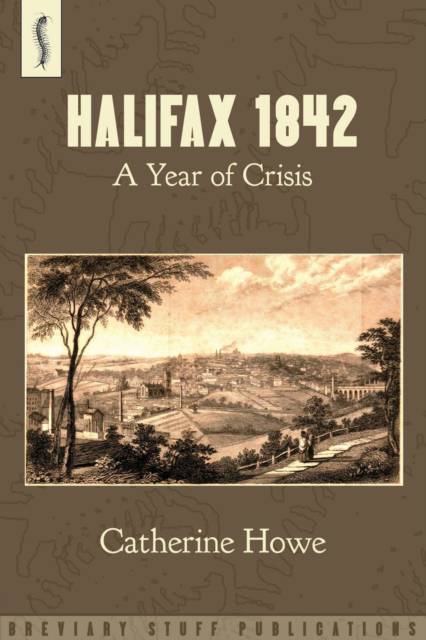
- Retrait gratuit dans votre magasin Club
- 7.000.000 titres dans notre catalogue
- Payer en toute sécurité
- Toujours un magasin près de chez vous
- Retrait gratuit dans votre magasin Club
- 7.000.0000 titres dans notre catalogue
- Payer en toute sécurité
- Toujours un magasin près de chez vous
Description
1842 was a year of crisis in Britain, and no more so than in the West Riding town of Halifax. A great strike of all trades took place across England in 1842. It reached its zenith in the industrial towns of the north, starting in the small communities of Lancashire and quickly spreading to the West Riding of Yorkshire as Lancashire marchers poured across the Pennines. In hand with its neighbouring town of Huddersfield, Halifax was noted for its opposition to the New Poor Law which, in 1834, attempted to abolish outdoor relief for the poor, for its support of a maximum ten-hour working day and the Chartists' call for workers' voting rights. When Bradford publican 'Fat Peter' Bussey attended the first Chartist Convention in London in 1839, he took with him the West Riding petition bearing 52,800 signatures, 25 percent of which had been given at Halifax. This book discusses the efforts made by the men and women of Halifax in these early years of organised agitation for social reform, their 'clandestine meetings and nightly drilling', their 'determination, resilience and militancy' to gain a say in the laws under which they lived. It tells of the fight for the legislative rights of workers like seventeen-year-old Patience Kershaw, who dragged loads of coal for twelve hours each day along narrow and dangerous passages under the hills of Halifax. When the Lancashire marchers arrived at Halifax in the hot summer of 1842, the cavalry attempted to clear the streets with their sabres and a violent response was inevitable, arrests quickly followed. The climax came when many hundreds of the men and women of Halifax fought against British soldiers on 16th August 1842, an event which led to the humiliation of a proud platoon of Prince Albert's Own and to the death of at least six men of Halifax.
Spécifications
Parties prenantes
- Auteur(s) :
- Editeur:
Contenu
- Nombre de pages :
- 202
- Langue:
- Anglais
Caractéristiques
- EAN:
- 9780957000582
- Date de parution :
- 01-05-14
- Format:
- Livre broché
- Format numérique:
- Trade paperback (VS)
- Dimensions :
- 156 mm x 234 mm
- Poids :
- 317 g

Les avis
Nous publions uniquement les avis qui respectent les conditions requises. Consultez nos conditions pour les avis.






